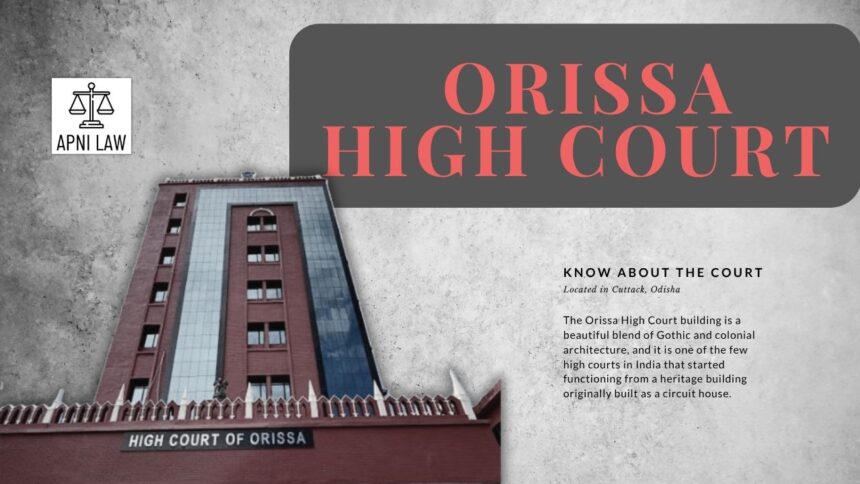Introduction
In Santosh Ku. Sahoo v. Union of India (Orissa High Court, October 10, 2025), the court addressed whether the Railways bears strict liability when a passenger accidentally falls from a moving train and is run over. The court held that such incidents qualify as “untoward incidents” under the Railways Act, 1989, and the Railways must pay compensation even without proving negligence.
Facts of the Case
On January 19, 2017, Krushna Chandra Sahoo travelled on the Visakha Express from Berhampur to Bhubaneswar with a valid ticket. While the train ran between Lingaraj and Bhubaneswar stations, it jerked and braked suddenly. In the chaos and rush, Sahoo lost his balance and fell off the moving train. He died instantly, likely after being run over.
His heirs filed a claim under Section 124A of the Railways Act, 1989, seeking compensation for an “untoward incident” under Section 123(c)(2). But the Railway Claims Tribunal denied relief. The Tribunal concluded the circumstances did not show a fall from the train and ruled that the incident did not amount to an “untoward incident.” It also held that the deceased was not a bona fide passenger, invoking a proviso that exempts liability. The heirs then appealed to the High Court.
What the Court Says
The High Court first observed that the recovery of a valid train ticket from the body site confirmed that the deceased was a bona fide passenger under Section 2(29). The tribunal’s assumption that no proof of ticket existed lacked basis.
Justice Panigrahi recalled that under Section 124A, once death or injury results from an “untoward incident,” the Railway must pay compensation. The Railway cannot avoid liability unless a specific exception applies. The court rejected the Tribunal’s speculative suggestion that the death was suicidal. No evidence supported any alternative theory. The inquest, post-mortem, and police report uniformly show the cause of death was a fall from the train.
The Court emphasized that an accidental fall sometimes leads to being run over—either by the same train or another. Even if that is so, the “intrinsic character” of the mishap remains an accidental fall. The Court declined to artificially separate the fall from the run-over when enforcing liability.
Citing the Supreme Court in Union of India v. Prabhakaran Vijay Kumar (2008), the High Court cautioned that a narrow interpretation of “accidental fall” would betray legislative purpose and unjustly deny compensation to many passengers in similar tragedies.
Because the incident met the definition of “untoward incident,” the Court held the Railway strictly liable. It directed payment of ₹8,00,000 as compensation plus interest at 6 % per annum from the date of claim filing until payment.
Implications
This decision reaffirms that Railways bear strict liability for passenger deaths or injuries due to accidental falls, even when the passenger is further run over. It closes loopholes where tribunals might deny claims by splitting the causal sequence. The judgment strengthens protection for bona fide passengers. It also reinforces that courts cannot speculate alternative theories of death in absence of evidence.
This ruling may push tribunals to accept claims more readily when falls occur. The judgment may also deter Railways from contesting liability in such clear cases. It aligns with higher-court precedent and underscores the broad remedial purpose of the Railways Act.
Conclusion
In Santosh Ku. Sahoo v. Union of India, the Orissa High Court held that an accidental fall from a moving train, followed by being run over, still qualifies as an “untoward incident” under the Railways Act. The court ordered compensation without requiring proof of Railway negligence. This decision strengthens passenger protection and clarifies that the Railways cannot evade liability through artificial distinctions in causal chain.








